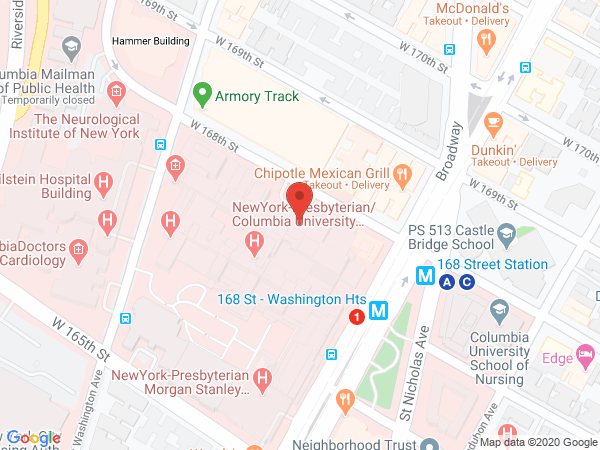Intervention and Implementation Science Pilot Award
This service is provided by the Implementation Science Initiative at the Irving Institute for Clinical and Translational Research, the Departments of Epidemiology and Sociomedical Sciences at the Mailman School of Public Health, the CDC Columbia Center for Injury Science and Prevention, the NIEHS Center for Environmental Health in Northern Manhattan, and the SPIRIT (Social Psychiatry: Innovation in Research Implementation and Training) Initiative.
Overview
The Intervention and Implementation Science Pilot Awards Program is a key capacity building opportunity to stimulate the development and testing of:
- Innovative population health or medical/clinical interventions.
- Implementation of evidence-based population health or medical/clinical interventions that have been shown to work, but have not been widely adopted, implemented or sustained in diverse and real-world global, community, clinical/health systems or policy settings.
Epidemiologic, social/behavioral sciences, population health, environmental health and clinical sciences have a long history as a force for positive change, intervening to prevent and treat disease, identifying solutions to difficult community-level problems, and scaling-up these solutions to protect and improve the health, safety, and wellbeing of whole populations.
While study of the distribution and determinants of health is vital, it is incumbent upon public health science and clinical medical practice to equally elevate and promote the discovery of new knowledge to innovatively intervene on health, produce new actions that improve and promote health, and determine the best ways to disseminate, implement, scale-up, and sustain these actions to offer population and clinical benefits beyond the laboratory or any one community. This focus is particularly critical in light of striking and persistent health inequities across a range of health outcomes.
This program offers early resources for pilot, proof-of-concept projects, ultimately leading to larger intervention or implementation science projects and producing new knowledge that directly impacts population health, supported by larger extramural funds.
- Award amount: Mini-Pilots of $10,000 and Pilots of $20,000-$40,000
- Duration: One year
Applications will be accepted in two program areas:
- Intervention Science: Scientifically designing and testing interventions.
Projects with development and pilot testing of interventions with the intention of preparing larger grants involving randomized controlled trials; quasi-experimental and other designs will be considered. - Implementation Science: Applying implementation strategies.
Projects with compelling prior evidence demonstrating some level of effectiveness or efficacy of the intervention/strategy to be implemented, such as multiple completed randomized controlled trials and/or quasi-experiments.- A range of designs is encouraged, including those that assess the acceptability, feasibility, dissemination, implementation, and/or sustainability of interventions and/or implementation strategies, including quasi-experiments and mixed-methods designs (see framework).
Mini-Pilot and Pilot Study Projects may focus on:
- Interventions and strategies at multiple levels, including: Community and population health strategies, clinical and healthcare system strategies, and theory-based psychosocial and behavioral strategies.
- Domains including: Environmental health, injury and violence prevention, mental health, and social justice and health.
- Methods and approaches including: Primary data collection, mixed methods, community engagement, use of mobile health technology, and/or accompanying analyses of biosamples.
- Projects for the SPIRIT (Social Psychiatry: Innovation in Research Implementation and Training) initiative will focus on technology (e.g. smartphones, social media), climate change, or growing inequality as drivers of mental health issues in the US population and strategies in school- and community-based primary prevention, economic and social policy, crisis support, or stigma reduction.
Special consideration will be given to projects that include research plans reflecting alignment with the Columbia University and Irving Institute commitment to Diversity, Equity, and Inclusion, and the Department of Epidemiology’s Anti-Racist Values Statement. Proposals focused on promoting health equity and/or racial justice will be prioritized.
See a list of Intervention and Implementation Science Pilot Award recipients.
Eligibility
- Principal Investigators must be full-time faculty at the rank of assistant professor or higher from one of the schools or institutes across Columbia University Irving Medical Center.
- Intervention and Implementation Science Pilot Award program leadership and faculty co-sponsors, as well as senior leaders and Resource directors of the Irving Institute, may be consulted during the preparation of the application, but they should not be included as co-investigators or collaborators.
- Only one application per round per principal investigator (PI) permitted. Principal investigators may be listed as co-investigators or consultants on other applications.
-
We strongly encourage applications from Principal Investigators and/or teams of investigators from underrepresented groups.
Deadlines
The application cycle is closed.
Cite it, Submit it, Share it!
If your research has benefited from one or more Irving Institute resources, please remember to:
- Cite our CTSA grant, UL1 TR001873, in any relevant publications, abstracts, chapters, and/or posters.
- Submit your publications to PubMed Central (PMC) for compliance with the NIH Public Access Policy.
- Share your research updates with us by sending an email to: irving_institute@cumc.columbia.edu.
